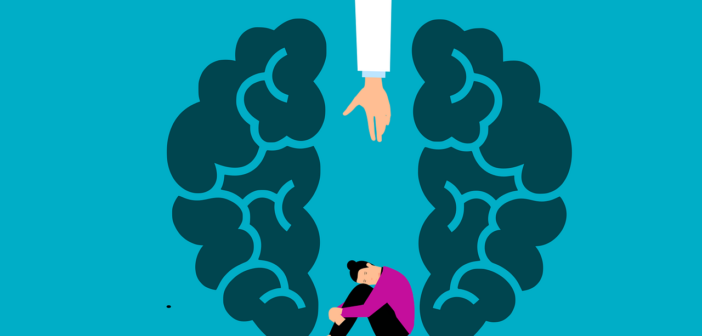Looking after your mind is as important as taking care of your body. But sometimes, it can be hard to know where to start. Luckily, there are plenty of mental health resources out there to help us. Let’s break it down and explore some of the easiest ways to take care of our mental health.
Talking to Professionals: Therapists and Clinics
One of the best places to start is with professionals. This might sound scary, but it’s their job to help us feel better. Therapists and mental health clinics can listen to our problems, help us understand what’s going on in our minds, and give us tools to cope.
Professionals like therapists and psychiatrists have spent years studying the mind and learning how to guide us through difficult times. They’re a bit like guides for our brains, showing us the path when things start to feel too much.
Going to a therapist or a mental health clinic can be as simple as having a chat. It’s a safe space where you can talk about anything that’s been worrying you, from big worries like trauma or severe stress to smaller things that have been nagging at you. The good thing is, no worry is too big or too small for them.
During your sessions, these professionals will listen carefully and help you understand your feelings better. They won’t judge or dismiss your feelings, but they will give you a fresh perspective, and often, that’s what we need to start feeling better.
They also have loads of strategies and tools to help us cope. Maybe you’re dealing with stress and need some relaxation techniques, or perhaps you’re struggling with negative thoughts and need help managing them. Either way, these experts can offer practical tools, like mindfulness exercises or cognitive behavioural strategies, which are just fancy terms for ways to help our minds cope with problems.
Remember, reaching out to a professional isn’t a sign of weakness; it’s a smart move to keep your mind healthy. They’re there to help, just like a doctor is there when we have a physical ailment. After all, our minds deserve the same care and attention as the rest of our bodies.
Helping Each Other: Community Programs
There’s power in numbers. In every community, there are programs that bring people together to talk about mental health. These groups can teach us a lot about how to handle stress, deal with hard times, and remind us that we’re not alone.
Community programs come in many shapes and sizes. They might be informal meetups in a local coffee shop, regular get-togethers in a community center, or even organized events in a park. The beauty of these programs is that they’re made up of everyday folks like us. These are people from our neighborhood, who might be going through similar things as us, and understand what it’s like.
When we participate in these programs, we get a chance to open up about our mental health in a safe and understanding environment. There’s no need to put on a brave face or pretend that everything’s okay when it’s not. In these groups, it’s okay to say you’re not okay. And it’s okay to listen and learn from others without having to say anything at all.
Through these discussions, we learn from one another. Someone might share a coping strategy that worked for them. Someone else might talk about how they got help when they were feeling really low. Hearing these stories can give us new ideas on how to handle our own stress and challenges.
And perhaps most importantly, community programs remind us that we’re not alone. When we’re struggling with our mental health, it’s easy to feel isolated, as if we’re the only one going through it. But in these groups, we see that this isn’t the case. There are others who understand, others who are there to support us.
So whether you’re looking for strategies to manage stress, want to learn more about mental health, or just need to feel connected, community programs can offer invaluable support. It’s all about people helping people, and that’s a powerful thing.
Mental Health Online: Digital Help
These days, we can do just about anything online, and that includes taking care of our mental health. There are websites and apps that offer therapy sessions, teach us how to relax, and provide tips to keep our minds healthy.
Indeed, the digital world has opened up a new frontier for mental health support. With just a few taps or clicks, we can access a wealth of resources. Whether you’re looking for professional counselling or tools to manage your mental health independently, the internet has a solution.
Online therapy platforms connect us with licensed therapists from the comfort of our homes. It’s just like having a face-to-face therapy session, but through a screen. This can be a real game-changer if getting to a physical location is difficult or if you feel more comfortable in your own space.
In addition to therapy, there are plenty of apps that can guide us through techniques like mindfulness and meditation. These tools can be great for reducing stress, managing anxiety, and improving our overall mental wellbeing.
And of course, there are countless websites full of articles, tips, and personal stories about mental health. These can be a great source of information and reassurance, helping us understand our feelings and realize that we’re not alone.
Here are some online resources that can help:
- BetterHelp – This platform connects you with professional counsellors and therapists. You can chat with them by text, phone call, or video call.
- Headspace – An app that offers guided meditations and mindfulness exercises to help reduce stress and anxiety.
- Moodfit – This app is like a personal trainer for your mental health. It offers tools and insights to help you improve your mood and overall mental wellbeing.
- Talkspace – Another online therapy platform where you can chat with professional therapists via text, audio or video.
- Calm – An app that offers guided meditations, sleep stories, and relaxing music.
Sharing Stories: Support Groups
It can be comforting to hear from others who are going through the same things we are. Support groups offer a safe space for us to share our experiences, learn from others, and find encouragement.
Support groups work on a simple yet powerful principle: shared experiences. These groups bring together people who are navigating similar challenges, be it anxiety, depression, stress, or any other mental health issue. Being in a space where everyone understands what you’re going through can be incredibly comforting. It’s like being part of a team, all working towards the same goal: better mental health.
In a support group, everyone has a chance to share their story. This isn’t a requirement, of course, but it can be a great way to let out feelings you’ve been holding in. And when you do share, you’ll often find that others have felt the same way, faced the same struggles, or dealt with similar thoughts. This can help you feel less alone and give you new ideas on how to cope.
But support groups aren’t just about sharing the tough stuff. They’re also about celebrating victories, big or small. Maybe you managed to get out of bed on a day you felt like you couldn’t. Or perhaps you reached out to a friend when you needed help. These victories matter, and a support group is a place to celebrate them.
Learning from others is a key part of support groups. Maybe someone has a great tip for dealing with anxiety attacks. Or perhaps someone else has found a way to handle negative thoughts. Everyone has different strategies, and sharing these can be a great way to discover new tools to manage your mental health.
And let’s not forget about encouragement. Support groups are full of people who are rooting for you, who want you to feel better and understand how hard you’re working. It’s a space to find strength when things are tough and to offer strength when you’re in a position to give it.
So if you’re looking for a space where you can be honest about your mental health, learn from others, and find encouragement, a support group could be a great option. It’s a space where you’re allowed to be you, and that’s a pretty great thing.
At School and Work: Mental Health Programs
When it comes to mental health, the places where we learn and work play a crucial role. More schools and workplaces are recognizing the importance of mental wellbeing and are stepping up to provide vital mental health resources.
In numerous schools, mental health resources have become standard, integrated into the curriculum to support the students. These resources can encompass lessons about mental health, sessions with guest speakers sharing their experiences, and the teaching of coping strategies. School counselors also represent a great mental health resource for students who need someone to talk to.
Similarly, workplaces are offering more mental health resources to their employees. Many companies now provide employee assistance programs that include counselling and mental health support. Workshops focusing on managing stress and maintaining a healthy work-life balance are becoming increasingly common in the corporate environment. After all, businesses are realizing that mentally healthy employees are happier and more productive, making mental health resources a win-win investment.
The goal is to create environments that not only focus on learning or productivity but also prioritise the overall mental wellbeing of their members. With these mental health resources integrated into our daily environments, caring for our mental health can become a regular part of our everyday lives.
There’s an array of mental health resources available to suit everyone, no matter where you are on your mental health journey. So, whether you’re at school, at work, or simply going about your day, remember that it’s perfectly okay to ask for help. Everyone needs a little support now and then, and there’s no shame in reaching out. After all, mental health is as important as physical health, and it deserves the same level of care and attention.




